The European Platform for Digital Humanism has been relaunched as Ars Electronica Platform Europe to foster collaboration for tech-driven change through art and to advocate for healthy democracies on the continent and beyond.
For many years, Digital Humanism was the driving concept behind our efforts. However, recent global developments at the ecological, technological and socio-political levels have led us to believe that the only genuinely effective way to achieve change is through collaboration. Working together with diverse and unique people and institutions that negotiate their common hopes, concerns and visions is the very DNA of Europe as a philosophical construct, a geographic space and a political union. For this reason—in the year in which the Ars Electronica Festival puts the spotlight on protagonists of positive change after a European election that leaves at least some space for negotiating hopeful futures—we have decided to relaunch the European Platform for Digital Humanism as Ars Electronica Platform Europe. While the platform’s identity, initiatives and scope have evolved, its core mission remains the same: to re-imagine tech-driven change through art and advocate for healthy democracies throughout the continent and across the globe.
“The European Union is the one single best idea we have ever had on this continent, and we had it together. The core of this Union is not geography, but a unique concept of collaboration that will sustain the future of this space and all that lives in it.”
Vanessa Hannesschläger, Head of European Collaboration, Ars Electronica
At this year’s festival, we introduce Platform Europe’s main approaches and the current projects that work towards its goals. These initiatives are the backstage for new narratives; here, new practices are established with and for artists and critical thinkers. We script the change we want to see in our socio-political, technological and planetary narratives, and we translate it into alternative ways of educating and engaging citizens, test it in incubation and digital transformation programs and develop it into transdisciplinary practices.
Narratives: The Planet
The climate crisis seems to be the planet’s way of rebelling against centuries of human-centered extractive and exploitative practices, putting pressure on us to connect our social, political and technological realities with the way we understand nature. Rewriting narratives about the planet has become imperative for the reconstruction of our modes of inhabiting it, a task that seems more urgent than ever. Platform Europe’s most focused approach to tackling this issue is the project More-than-Planet, co-funded by the Creative Europe Programme of the European Union.
Bill Fontana’s contribution to this year’s Ars Electronica Festival is realized in this context. Silent Echoes: Dachstein is a sound installation between the bells of the rebuilt Notre-Dame cathedral and the Dachstein ice caves. It makes the bells audible using vibration sensors, transmitting the sounds into the ice caves of the Dachstein mountains and mirroring them with the sounds of the melting glacier. This impressive artistic statement on climate change and the fragility of culture will be presented in the newly renovated St. Mary’s Cathedral as part of the Opening and throughout the festival.
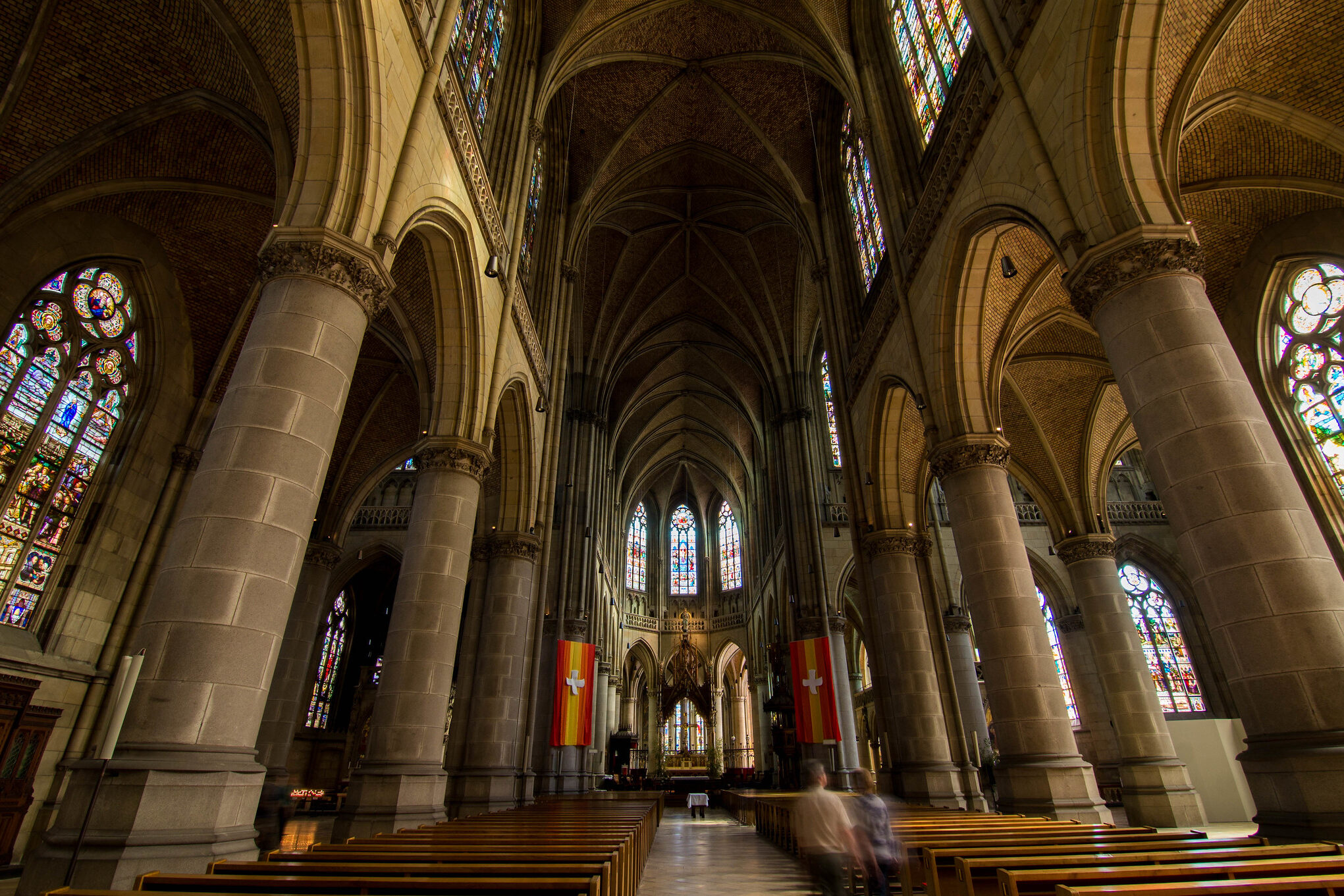
Narratives: Socio-Politics
Technology is not born and does not operate in a vacuum. Rather, technology is produced by and continuously (re)produces socio-political dynamics. The ways in which we make sense of the societal and political patterns around us are inevitably tied to the ways in which we develop our technologies, and reimagining technologies is dependent on our ability to create alternative social and political narratives. Platform Europe’s work here focuses on agency and the alternatives often obscured by the narrative of technological determinism. Our current agenda-setting project in this context is European Digital Deal, a project co-funded by the Creative Europe Programme of the European Union that gives context to part of this year’s Festival Theme Symposium.
The most important generation to engage with the social and political contexts we (want to) live in is the next one. Using a bottom-up approach that empowers young people to ‘own’ everyday democracy and engage in direct action towards justice-oriented transformations, the project Critical ChangeLab, funded by the European Union, aims to strengthen democracy in Europe by creating and implementing a flexible model of democratic pedagogy. In this context and in collaboration with create your world, this year’s festival presents the PodcastLab and the youth-led Critical Change Conference “Frischer Wind”.
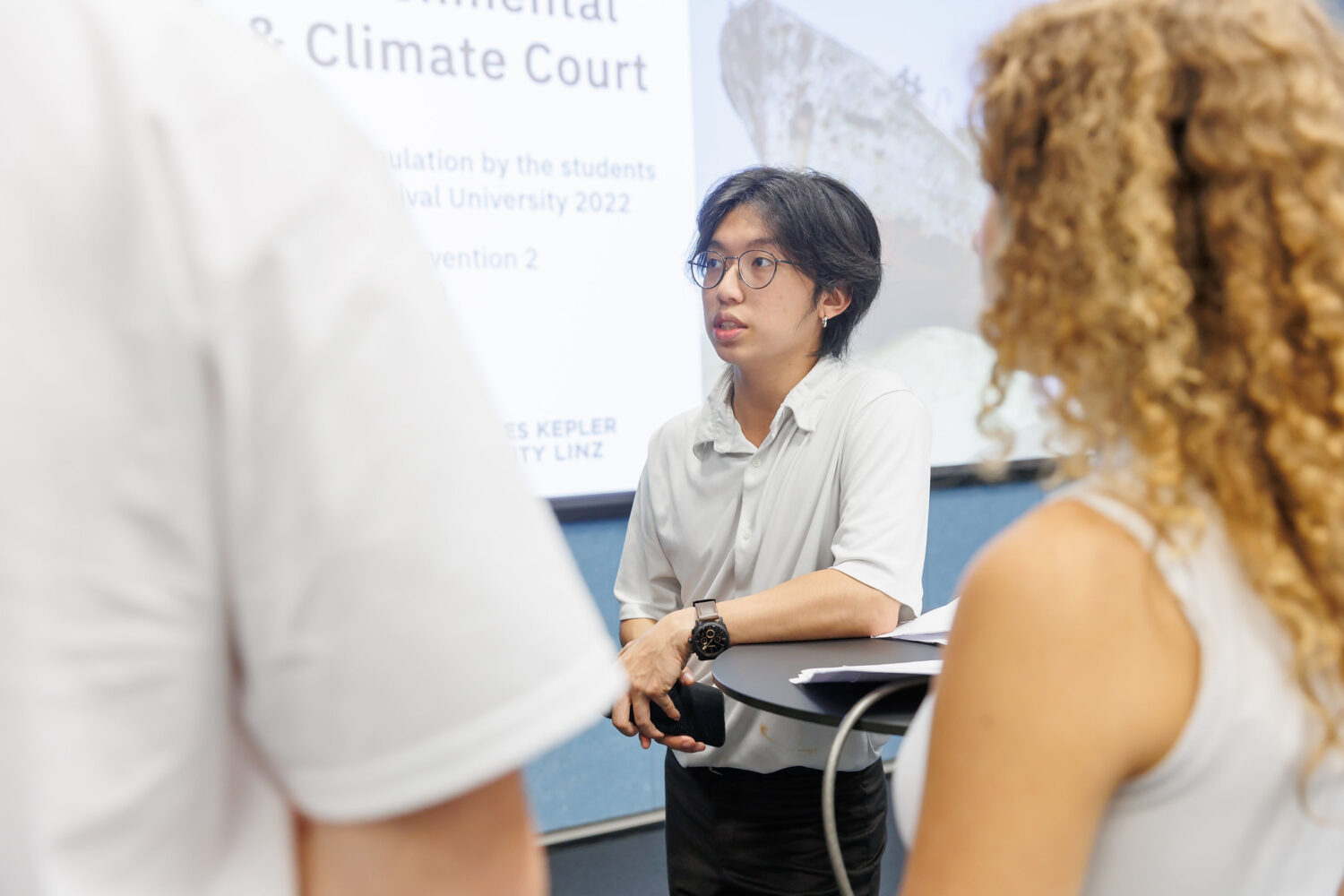
Narratives: Technosphere
Life in the Technosphere, where AI and Big Tech are reshaping social and technological landscapes, creates the need for a more human-centric approach to digital transformation. This need is highlighted by such dire consequences as the erosion of privacy, the spread of misinformation and the rise of data monopolies. With regard to Platform Europe, societal and ethical considerations are pushed to the forefront of technological development within projects that align with the European Union’s broader policies on digital transformation.
In the context of this year’s festival, the project Realities in Transition, co-funded by the Creative Europe Programme of the European Union, is the most prominent example of developing alternative narratives about the Technosphere. The exhibition Applied Virtualities: Extended Reality in Practice showcases artistic approaches to Extended Reality (XR) technology and its applications, and brings up questions of Open Source development, inclusivity and sustainability in technology.
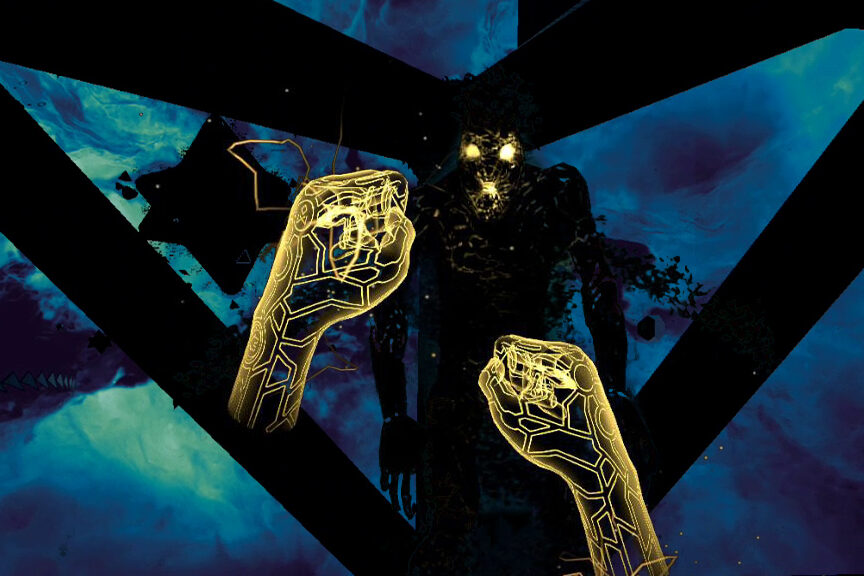
One of the key works in this exhibition is Department of Interfaced Dimensions (D.I.D). The project was developed in the context of a hybrid residency at V2_ Lab for the Unstable Media in Rotterdam. Seven artists were invited to jointly explore contemporary topics such as Virtual, Augmented and Mixed Reality, Artificial Intelligence and Machine Consciousness, Data Privacy and Surveillance, Simulation Theory, Existential Risk and Future of Humanity as they are raised in the 1964 SciFi-novel Simulacron-3. The group reflected on the creation of XR experiences with a strong creative and artistic component to create a collective experience that, in its core, considers the concepts of human interaction, group dynamics and empathy. The collaborative residency utilized Open Source tools and offered guidance from experts, speaking to Platform Europe’s dedication to developing new incubation and transformation practices.
“To ensure the potential future of XR for social engagement and collaboration, we should not linger in immersive escapism but instead design grounded experiences that augment our bond with the actual world around us.”
Boris Debackere, Realities in Transition partner at V2_ Lab for the Unstable Media
Practices: Incubation & Transformation
The European cultural sector is a diverse, ever-evolving field with a rich history to build on. With the digitalization of European societies, cultural organizations are not only transforming their strategies and approaches to collaborate beyond regional and national borders, but also across the sectors—exchange and cooperation with creative industries are becoming the cornerstone of innovation in the field. Platform Europe actively participates in the innovation processes underway in the cultural sector through initiatives that shape the digital future of theatres, museums and cultural and creative industries. Beyond our engagement in the facilitation of transformation models, we also advocate for and support incubation as a practice in numerous Art and Science residency programs. Projects connecting industry and other sectors to the artistic sphere can also benefit from incubation.
One prime example of this is the project Label4Future, funded by the European Union. In this context, we do not only showcase innovative arts-let projects on alternative materials as parts of this year’s STARTS exhibition, but also host a matchmaking event for artists invested in material research and SMEs in the plastics sector from Europe’s less developed regions.
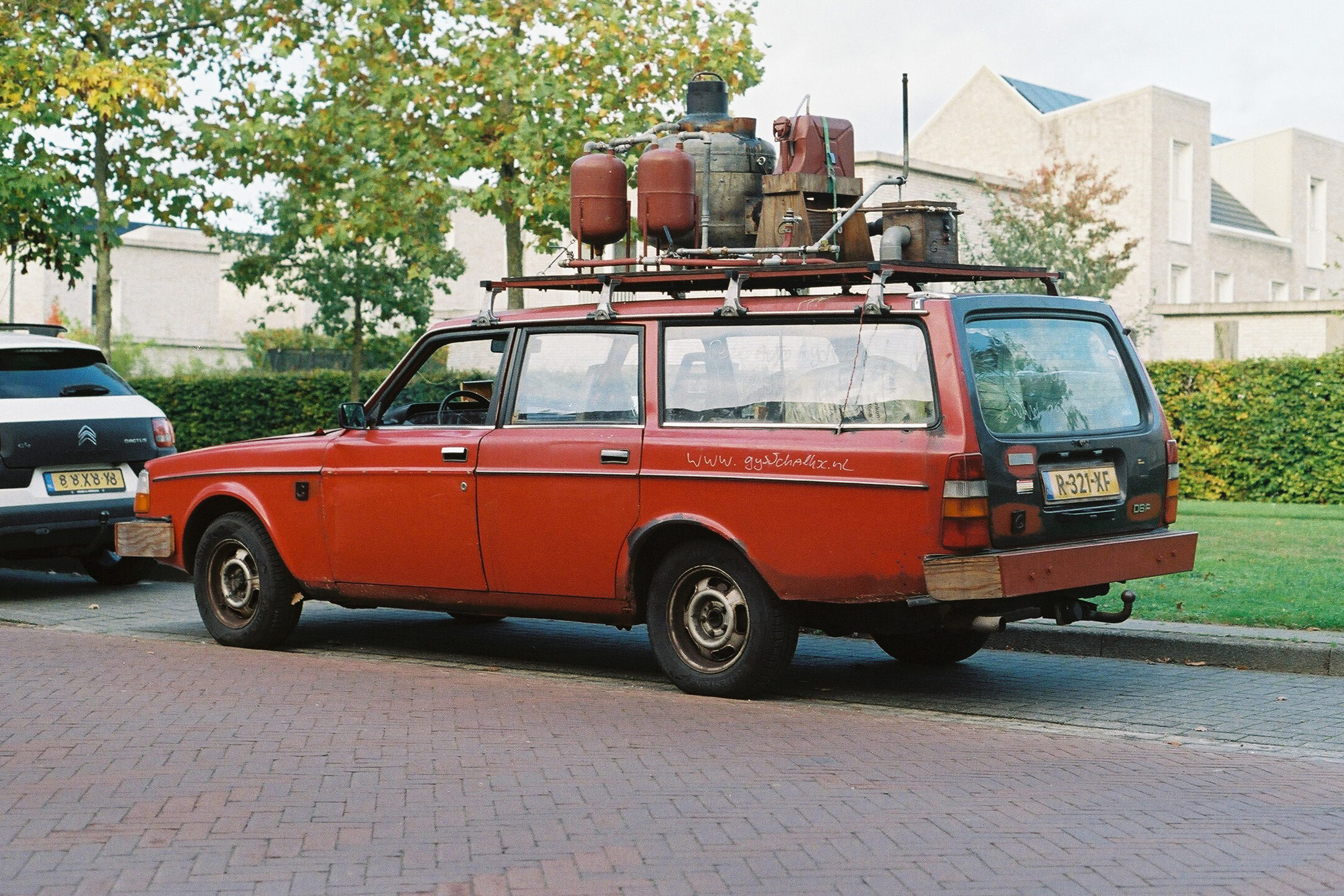
Practices: Transdisciplinarity
Transdisciplinary models that bring together knowledge from different fields of expertise to create a more fundamental understanding of the world represent the key to driving the societal evolution required to tackle the challenges of our time. By fostering a culture of transdisciplinarity across the continent, Platform Europe is invested in projects based on collaborative cultures, especially in the context of Art and Science.
“Art and Science is a transversal approach that has been gaining traction globally over the last decades. Integrating Technology into this transdisciplinary mix, both as mediator and accelerator, is not only a visionary strategy developed by the European Union, but also genuinely represents Ars Electronica’s perspective on the world and our future.”
Veronika Liebl, Managing Director Festival Prix Exhibitions, Ars Electronica
In this context, the S+T+ARTS (Science+Technology+Arts) initiative can be understood as the core crystal of Platform Europe. Ars Electronica’s long-standing involvement in STARTS is part of our wider commitment to designing and testing transdisciplinary practices and sustainably integrating art-thinking and artistic practice as innovation catalysts for research processes and technology development. Currently, Ars Electronica actively participates in three STARTS projects funded by the European Union which are featured in this year’s S+T+ARTS exhibition.
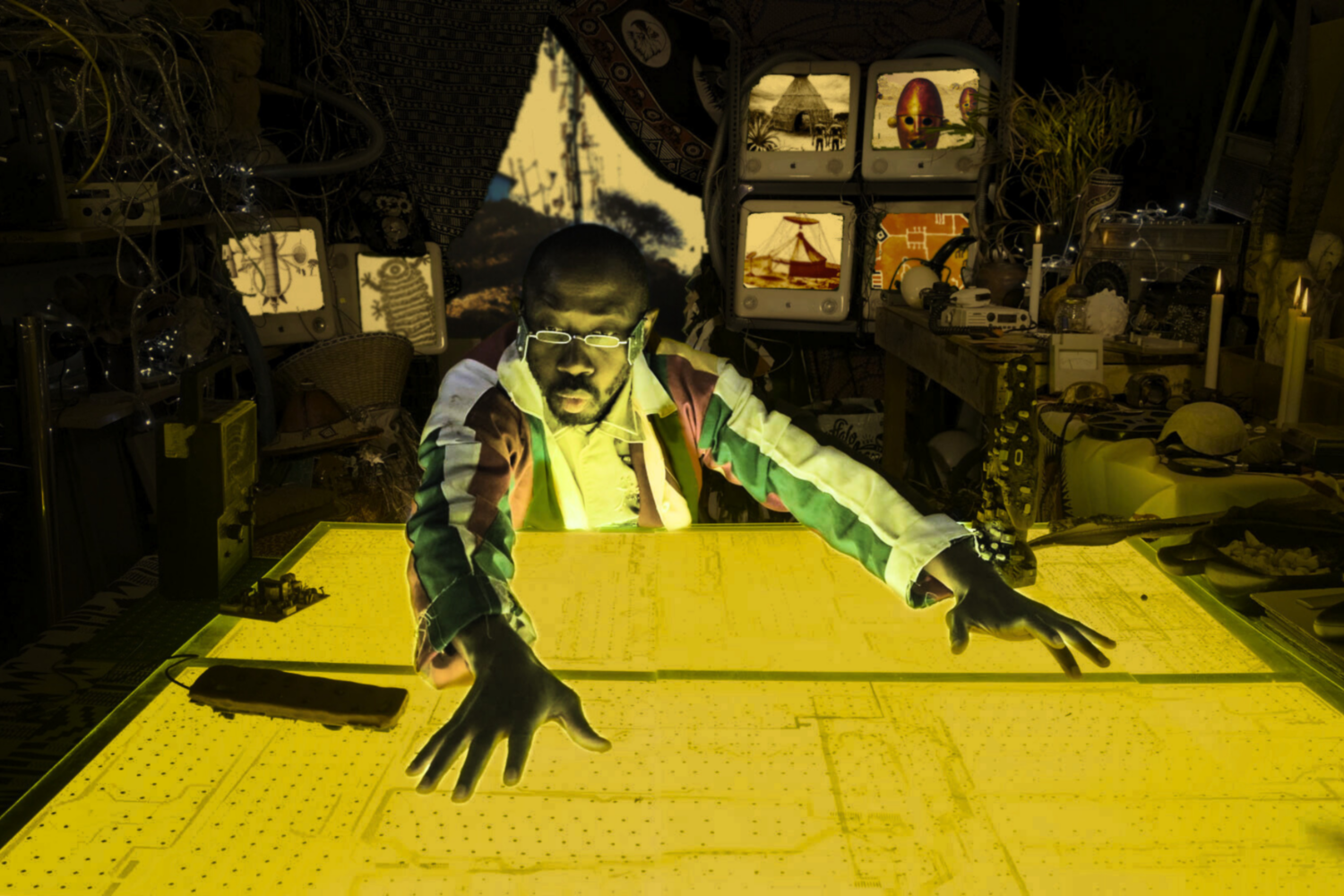
However, our commitment to transdisciplinary practices goes beyond a technology-focused understanding. In the face of complex issues and ramifying ecological implications of the Symbioscene, the second iteration of the Studiotopia project, co-funded by the Creative Europe Programme of the European Union, engages collaborative frameworks and interdisciplinary expertise. At this year’s festival, we are staging the conference Going green! Stories of Reinvention, Disruption and Systemic Change to Reclaim our Future in this context, where the Studiotopia Open Call for artists- and scientists-in-residency (with each other) will officially be launched.
“Rather than just having hope, we make it. The Studiotopia Conference will show exactly this: manifold inspiring, creative and hope-giving examples of people who started acting in order to tackle one of today’s biggest challenges—making human life and cohabitation with non-human species and nature on our planet more sustainable.”
Daniela Silvestrin, Studiotopia Conference Co-Curator
Practices: Education & Engagement
A joint understanding of how the world works is the fundament of democratic discourse. This kind of shared perspective can only be achieved if people share a knowledge base informed by fact. Traditional educational systems and models are increasingly struggling to create these joint knowledge bases successfully, which is why Platform Europe is invested in developing new and complementary educational approaches that understand knowledge creation as a bottom-up process. Equitable engagement of all people involved in the act of knowing facts is therefore not only the method, but also the ideology that guides us.
This approach is highlighted in this year’s festival with the exhibition Science through Society, which presents the winners of the European Union Prize for Citizen Science. This prize, awarded by Ars Electronica on behalf of the European Commission in the context of the IMPETUS project funded by the European Union, highlights outstanding projects whose social and political impact advances the further development of a pluralistic, inclusive and sustainable society in Europe.
Citizen Science stands for scientific research that transforms the allocation of roles and agency in the research process. Citizens initiate, design and implement investigations in collaboration with scientists, enabling all persons involved in the process to gain new perspectives. One outstanding example of achieving this is the exhibited project ASD Publics: Playable cities for all. It enhances the design and accessibility of public spaces for neurodiverse children, particularly those with autism spectrum disorder (ASD), by creating sensory- friendly environments through a collaborative co-creation methodology involving autistic children, families, urban practitioners, policymakers and autism experts.
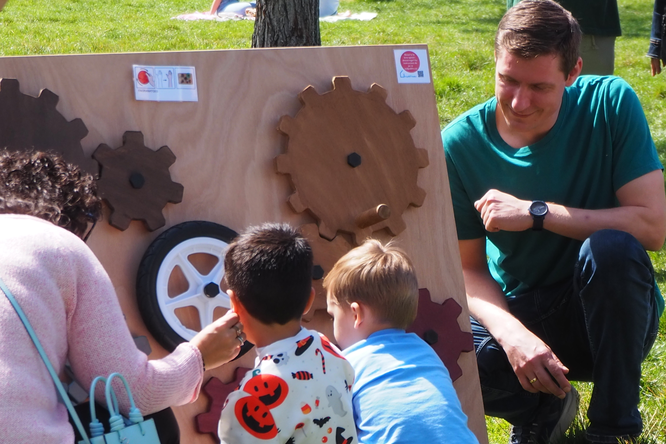
Town Hall Meetings
Platform Europe is a forum of exchange and collaboration for a network of academic institutions, public bodies, cultural organizations, creative industries and the private sector, from sustainable industries to innovative technologies, who come together in different constellations around projects (co-)funded by the European Union. In order to give them a dedicated space to connect and meet, we have developed the new format of Town Hall Meetings for professional audiences of the Ars Electronica Festival. Focused on a variety of topics—including Citizen Science, XR, Collaborative Practices in Art and Science, Sustainability Practices for Cultural Organizations and more—, the get-togethers are open to anyone interested and give the opportunity of expanding professional networks and building new connections.
The Platform Europe projects will be on show at POSTCITY, the Mariendom and many other locations as part of the Ars Electronica Festival 2024. Tickets are available here.
More-than-Planet, European Digital Deal, Realities in Transition and Studiotopia are co-funded by the Creative Europe Programme of the European Union. Critical ChangeLab is funded by the European Union under Grant Agreement No. 101094217. STARTS Ec(h)o is funded by the European Union under Grant Agreement No. 101135691. STARTS in the City has received funding from the European Commission’s Directorate-General for Communications Networks, Content and Technology under grant agreement No. LC-01984766. STARTS4Africa has received funding from the European Commission’s Directorate-General for Communications Networks, Content and Technology under grant agreement No. LC-01960720. Label4Future is funded by the European Union (European Innovation Council and SMEs Executive Agency EISMEA) under grant agreement No. 101133162. IMPETUS is funded by the European Union under Grant Agreement No. 101058677.
Silent Echoes: Dachstein is a project of the European Capital of Culture Bad Ischl Salzkammergut 2024 in cooperation with: IRCAM, OÖ KulturEXPO Anton Bruckner 2024, Ars Electronica Festival, Goiserer Musiktage, Kunstradio Ö1, MuseumsQuartier Vienna, Kunsthaus Graz. Thanks to: OÖ Seilbahnholding GmbH, Planai-Hochwurzen Bahnen GmbH. With the support of: Institut français d’Autriche and Office of the Upper Austrian Provincial Government—Department of Environmental Protection.
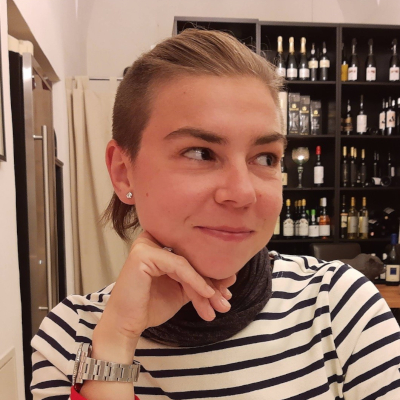
Vanessa Hannesschläger
Vanessa Hannesschläger is head of European Collaboration at Ars Electronica Festival in Linz, Austria. She holds a PhD in literature from the University of Vienna, where she teaches digital humanities. Her research focuses on new narratives and forms in theater, a topic she explores in her work at Ars Electronica in projects around digital theater and new approaches to XR. In Realities in Transition, she works on education around and dissemination of artistic approaches to XR. In the European policy context, Vanessa advocates for digital infrastructure for the arts and humanities, data literacy and Open Science.
